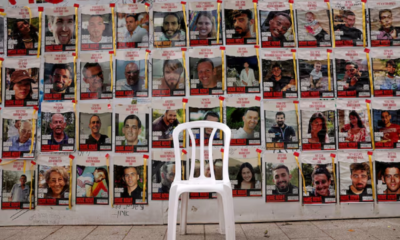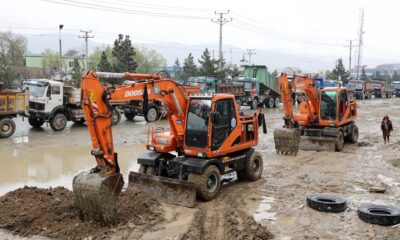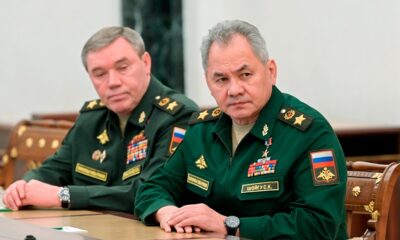Latest News
Muttaqi: Afghanistan is ready to work with the US, but sanctions must go
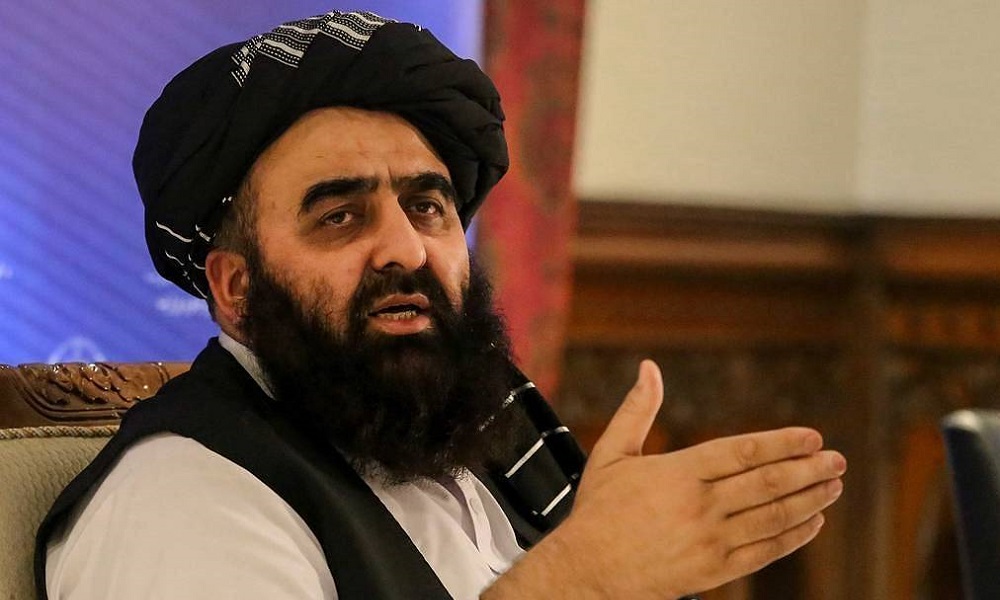
Amir Khan Muttaqi, foreign minister of the Islamic Emirate of Afghanistan (IEA), has once again asked the world to lift sanctions imposed on the country and expressed willingness to work with all nations, including the US.
In an article published in Al Jazeera, Muttaqi, said that not only has the war come to an end but Afghanistan is being administered by an independent, powerful, united, central and responsible government.
He said that a unique opportunity has emerged to embark on rapprochement between Afghanistan and the world.
“The conditions are ripe for Afghanistan to rise up as a responsible and independent member of the international community and to fulfil its responsibility in promoting global peace and security. The international community, on its part, should reciprocate by welcoming Afghanistan into its fold while paying respect to its independence and assisting it to stand on its feet. Our foreign policy will be based on a balanced and independent approach, that avoids entanglement in global and regional rivalries. We will pursue opportunities for shared interests and peaceful coexistence, based on the principle of equality and respect,” he wrote.
Muttaqi acknowledged the crisis in the country and blamed sanctions imposed by the US and other countries for it.
“The primary cause of the ongoing economic crisis is the imposition of sanctions and banking restrictions by the United States. This impedes and delays our efforts to address the humanitarian crisis,” Muttaqi wote.
“What moral and political justifications can the US have for imposing crippling sanctions on a war-torn nation?”
He added that over the past two decades, the Afghan economy “was made wholly dependent on foreign aid” and now with zero aid inflows, there was a need to “address the basic and fundamental needs of the Afghan people”.
He also reminded the US and other countries that sanctions and pressures do not resolve differences. “There is a need for the international community to establish political and economic relations with the Islamic Emirate of Afghanistan while respecting its sovereignty and territorial integrity.”
Muttaqi warned that if sanctions result in another failed government in Afghanistan, it would result in grave consequences not only for the country but the whole world.
“Such a scenario will be accompanied by a great human tragedy that will not be limited to Afghanistan, but rather usher in new and unforeseen security, refugee, economic, health and other challenges for our neighbours, the region and the world.”
According to Muttaqi, the cultural sensibilities of Afghanistan require a “cautious approach.”
“As for our internal affairs, which have at times been misconceived or misconstrued, there remains the need to dispel misinformation and depict an accurate picture of the values and needs of Afghanistan. The religious and cultural sensibilities of our society require a cautious approach. Any government that has not maintained the proper equilibrium, pertaining to such sensibilities, has ultimately faced serious difficulties. This is a lesson that our recent history has emphasised over and over again,” Muttaqi wrote.
On the government’s achievements, the minister claimed that action has been taken to ensure that Afghanistan soil was not used against other countries while the cultivation of drugs has been banned.
“We celebrate, and take pride, in our diversity and rich history. We don’t believe in imposing the majority’s will on a minority. In our view, every citizen of the country is an inseparable part of the collective whole.”
Muttaqi acknowledged that there remain “challenges and shortcomings” and sought time, resources and cooperation to address those issues. “Virtually all countries of the world have problems of their own. Yet, we choose to assist and alleviate, rather than shun and exacerbate.”
Latest News
Three road construction projects launched in Kabul
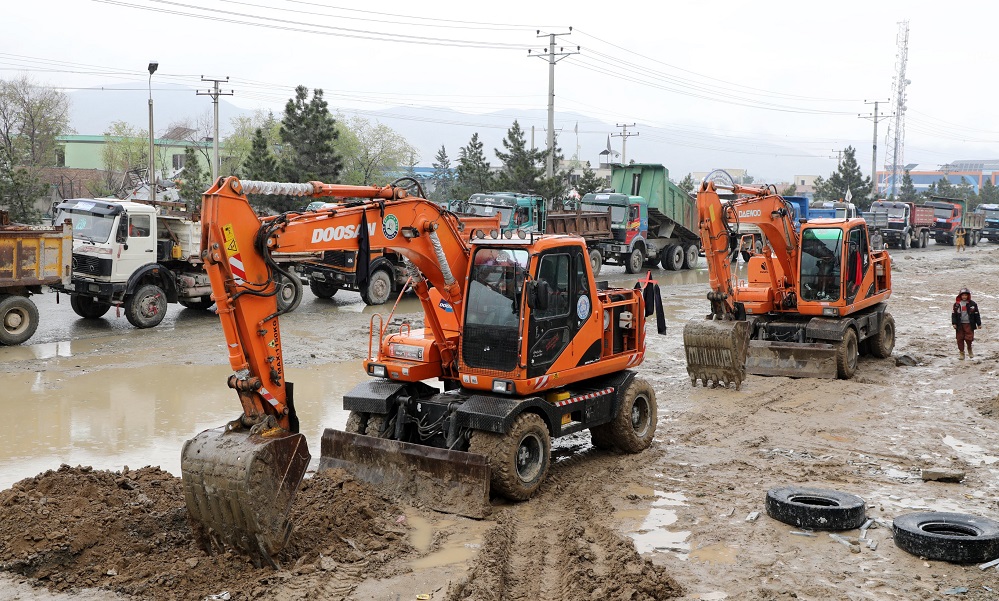
Three road construction projects worth about one billion Afghanis started in capital Kabul on Saturday.
The projects were inaugurated by Deputy Prime Minister for Economic Affairs Mullah Abdul Ghani Baradar.
The projects are: the second phase of Kotal Khairkhane road, the first part of the Shahid square to Qasaba, and the Airport road to Gumruk.
In the inauguration ceremony, Mullah Baradar said that Kabul municipality is working hard to beautify and regulate the city, and people should cooperate with the government in protecting public benefit projects.
He directed the officials of Kabul municipality to complete the mentioned projects on time and with good quality.
The second phase of Kotel Khairkhaneh road is 2.5 kilometers long and 60 meters wide. Thie road will cost 364 million Afghanis and will be completed in 20 months.
The Shahid square-Qasaba road is 1.8 kilometers long and 45 meters wide, which will be built at a cost of 175 million Afghanis in one year.
The Airport-Gumruk road is 2.7 km long and 60 meters wide, which will be completed at a cost of 407 million Afghanis in 20 months.
The projects are funded by Kabul Municipality.
Latest News
Russian defense minister says main threat for SCO countries emanates from Afghanistan
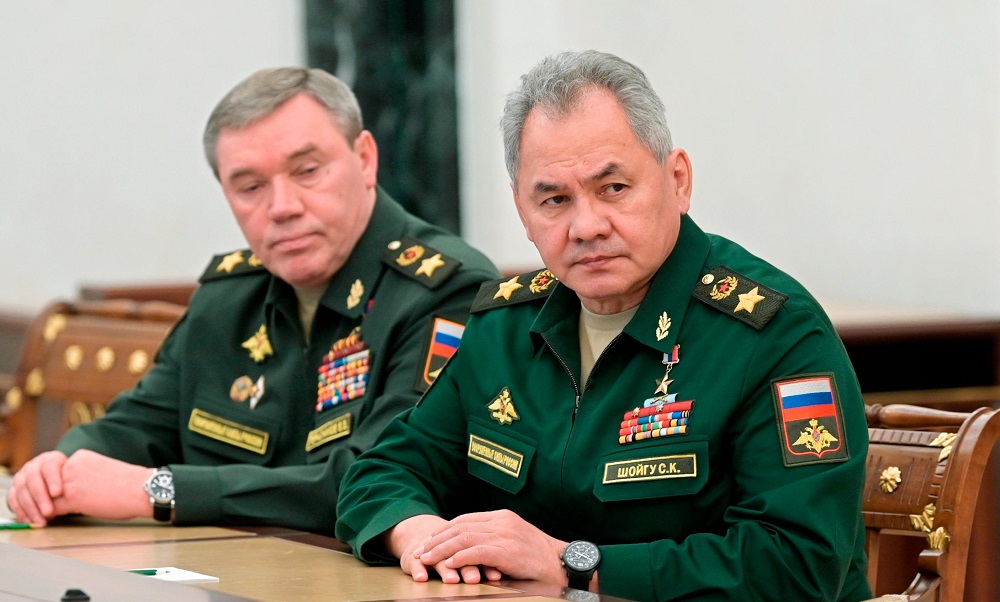
Russian Defense Minister Sergey Shoygu said on Friday that the main threat for the Shanghai Cooperation Organization (SCO) members emanates from Afghanistan where international terrorist groups find shelter due to unstable and indefinite political situation.
Speaking at a meeting of the SCO defense ministers in Kazakhstan’s capital Astana, Shoygu said Washington has stepped up efforts to restore its positions in Central and South Asia that were lost after the withdrawal of coalition troops from Afghanistan, Anadolu Agency reported.
The military chief called “unacceptable” the deployment of the American military infrastructure in the region, arguing that intentions should be regarded as “a direct threat to stability in the SCO space.”
According to him, the US is trying to impose a new security system in the Asia-Pacific region for dominance.
This comes as the Islamic Emirate has repeatedly emphasized that it does not allow anyone to pose threats to any other country from Afghanistan soil.
Recently, Mohammad Yaqub Mujahid, Acting Minister of National Defense Mohammad Yaqub Mujahid said that no destructive groups including Daesh have physical presence in Afghanistan,
Latest News
IEA calls Mujahideen Victory Day ‘freedom day’

In a statement on the occasion of the 32nd anniversary of the victory of the Mujahideen against the then communist government, the Islamic Emirate said that it is a day of freedom of the Afghan nation.
The Islamic Emirate described the coup by People’s Democratic Party of Afghanistan on 27th April 1978 as a dark day in history, as a result of which the people of Afghanistan suffered severe human and financial losses.
The statement said that the Afghan nation suffered huge casualties in their 14-year struggle against the thoughts and actions of the communists, as 1.5 million people died and millions more faced various hardships.
“After 20 years of Jihad, our country was freed from another occupation and the Islamic system was established, so the Islamic Emirate will make its utmost efforts so that the fruits of decades of sacrifice and struggle of this nation are not wasted,” the statement said.
“It was the wish of the martyrs to fully implement the Islamic system in the country, and therefore, the Islamic Emirate is trying to facilitate development and prosperity under the shadow of the Islamic system in order to realize the goals of the Afghan people’s jihads,” it added.
-

 Latest News4 days ago
Latest News4 days agoRashid Khan named AWCC’s brand ambassador
-

 World4 days ago
World4 days agoMalaysian navy helicopters collide in mid-air, 10 killed
-

 Sport4 days ago
Sport4 days agoJaiswal ton powers Rajasthan to big IPL win
-

 World4 days ago
World4 days agoNorth Korea officials visit Iran in a rare public trip
-

 Latest News5 days ago
Latest News5 days agoAt least 1,500 families affected by recent floods: IRW
-

 Sport4 days ago
Sport4 days agoMawj Sahil player scores stunning halfway line goal in 1-0 win over Jawanan Wahedi
-

 Sport3 days ago
Sport3 days ago‘Serious talent’ Fraser-McGurk bonds with Warner to light up IPL
-

 Latest News4 days ago
Latest News4 days agoUS report cites ‘significant deterioration’ in Afghan women’s rights last year




